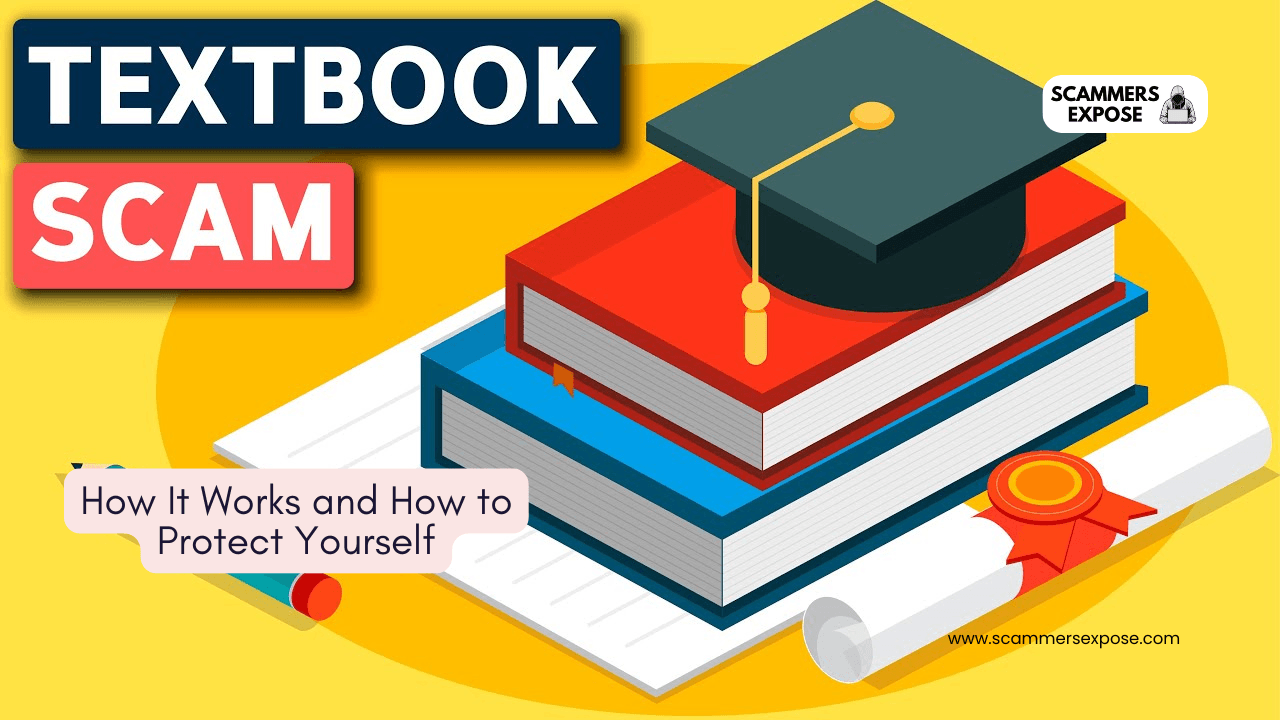Kalyanam scams have become a significant issue, with devastating financial and emotional impacts on victims. As these fraudulent activities rise, legal actions against Kalyanam scammers are critical to holding perpetrators accountable and preventing future crimes. This blog explores the financial losses, legal consequences, and efforts to combat these scams, highlighting the importance of legal recourse in protecting society.
Impact on Society: Legal Actions Against Kalyanam Scammers
Understanding the impact of Kalyanam scams on society, as well as the legal actions against Kalyanam scammers, is essential for raising awareness and protecting individuals from falling victim to these fraudulent schemes. This section delves into the financial losses and legal consequences associated with such scams.
Financial Losses and Consequences
Kalyanam scams have severe financial repercussions for victims. Scammers often exploit the emotional vulnerability and trust of individuals seeking companionship, resulting in significant financial losses. These fraudulent activities can deplete victims’ savings, lead to mounting debts, and cause long-term financial instability. In addition to the financial losses suffered by victims, legal actions against Kalyanam scammers are crucial in holding them accountable for their fraudulent activities.
Kazalyanam scammers typically employ sophisticated tactics to manipulate their victims, convincing them to transfer large sums of money under false pretenses. The financial impact on society extends beyond individual losses, affecting the broader economic landscape through decreased consumer trust and increased financial insecurity.
| Year | Total Financial Losses (in $ millions) |
|---|---|
| 2020 | 500 |
| 2021 | 750 |
| 2022 | 1,000 |
For more information on the financial impact of these scams, visit our page on financial impact of kalyanam scams.
Criminal Charges and Prosecutions: Legal Actions Against Kalyanam Scammers
Kalyanam scammers face severe legal repercussions due to their fraudulent activities. Authorities have increased their efforts to identify, charge, and prosecute these criminals to deter future scams and seek justice for victims. Many of these legal actions against Kalyanam scammers have resulted in criminal charges and prosecutions, sending a strong message to potential offenders.
The Justice Department’s COVID-19 Fraud Enforcement Task Force has charged over 3,500 defendants and seized or forfeited more than $1.4 billion in stolen relief funds. These legal actions highlight the government’s commitment to combating fraud and protecting the public. The legal actions against Kalyanam scammers, including the establishment of COVID-19 Fraud Task Forces, demonstrate the government’s dedication to tackling these issues.”
The IRS Criminal Investigation division has also been actively involved in prosecuting fraud cases, with the investigation of 1,644 tax and money laundering cases related to COVID fraud totaling nearly $9 billion. A significant number of individuals have been indicted, with an impressive conviction rate of 98.5%. The Justice Department’s efforts to prosecute fraud cases underline the effectiveness of legal actions against Kalyanam scammers in securing justice for victims.
One notable case involved Rami Saab, also known as “Rami Hasan,” who was sentenced to 10 years in prison and required to pay $9.6 million in restitution for orchestrating a loan fraud scheme during the COVID-19 pandemic (IRS).
Overview of Legal Actions Against Kalyanam Scammers and COVID-19 Fraud Prosecutions
| Type of Fraud | Number of Defendants Charged | Amount Seized (in $ millions) |
|---|---|---|
| COVID-19 Relief Fraud | 3,500+ | 1,400+ |
| Tax and Money Laundering Cases | 1,644 | 8,900 |
For insights into the legal proceedings and the types of scams targeted, visit our sections on kalyanam scam warning signs and how kalyanam scams operate. Many civil lawsuits have been filed as part of the legal actions against Kalyanam scammers, with the aim of providing restitution to victims.
Understanding the financial and legal ramifications of Kalyanam scams underscores the importance of vigilance and proactive measures in protecting oneself from fraudulent activities. Visit our page on protecting yourself from kalyanam scams to learn how to stay safe.
COVID-19 Fraud Task Forces
The COVID-19 pandemic has led to an increase in fraudulent activities, including scams targeting financial relief programmes. As a response, the Justice Department established the COVID-19 Fraud Enforcement Task Force to combat and prevent pandemic-related fraud.
Justice Department Efforts
To tackle the surge in COVID-19 scams, the Justice Department’s COVID-19 Fraud Enforcement Task Force has taken significant measures:
- Established to marshal the resources of the Justice Department.
- Investigated and prosecuted criminal actors involved in pandemic-related fraud.
- Assisted in preventing fraud in relief programmes.
- Enhanced efforts to combat and prevent pandemic-related fraud (Justice.gov).
The task force’s initiatives have resulted in impressive outcomes:
| Metric | Outcome |
|---|---|
| Defendants Charged | 3,500+ |
| Stolen Funds Seized or Forfeited | $1.4 billion+ |
| Civil Lawsuits Filed | 400+ |
| Court Judgments and Settlements | Numerous |
Cases and Indictments
The concerted efforts of the COVID-19 Fraud Enforcement Task Force through various strike forces have led to numerous indictments and convictions. Some key figures include:
- 250 defendants indicted, including gang members and overseas fraud rings.
- 795 people indicted for alleged COVID-19-related crimes.
- 373 individuals sentenced to an average of 34 months in federal prison with a 98.5% conviction rate.
Moreover, the National Unemployment Insurance Fraud Task Force has:
- Disseminated over 100 leads and intelligence.
- Associated with over $3 billion in suspected pandemic fraud.
The continuous endeavors of these task forces underscore the commitment to protecting citizens from fraudulent schemes, such as the kalyanam scam. For more detailed stories about scam victims, visit stories from kalyanam scam victims. Additionally, learn about measures to protect yourself from kalyanam scams.
Legal Actions Against Scammers
In the battle against kalyanam scams, law enforcement agencies use various legal strategies to hold offenders accountable. These efforts include civil lawsuits and settlements, as well as criminal convictions and sentences.
Civil Lawsuits and Settlements
Law enforcement agencies often resort to civil actions as a means to recover ill-gotten gains and provide restitution to the victims. The Justice Department, for instance, has employed civil lawsuits effectively to combat fraud, including cases related to the COVID-19 pandemic. In numerous cases, legal actions against Kalyanam scammers have resulted in significant settlements, recovering funds stolen through fraudulent schemes.
| Action | Number | Amount ($) |
|---|---|---|
| Civil Lawsuits Filed | 400+ | – |
| Court Judgments and Settlements | 400+ | 100 million+ |
| Seized or Forfeited Funds | – | 1.4 billion+ |
Civil lawsuits can result in significant penalties and restitution orders. These actions can deter future scammers and provide a mechanism for compensating the victims.
For further details, visit our page on how kalyanam scams operate.
Convictions and Sentences
Criminal prosecutions serve as another powerful tool in the fight against kalyanam scammers. Prosecutors aim to secure convictions that come with harsh penalties, including prison sentences and hefty fines. Convictions and sentences are important outcomes of legal actions against Kalyanam scammers, deterring future crimes.
For example, Rami Saab, also known as “Rami Hasan,” was sentenced to 10 years in prison and required to pay $9.6 million in restitution for his role as the mastermind behind a conspiracy to fraudulently obtain loans during the COVID-19 pandemic. The case of Rami Saab is one of many examples where legal actions against Kalyanam scammers resulted in harsh penalties, including long-term imprisonment.
In terms of overall COVID-19 fraud enforcement, the following data presents a compelling picture:
| Action | Number | Average Sentence (months) |
|---|---|---|
| Defendants Charged | 3,500+ | – |
| Civil Settlements | 400+ | – |
| Indicted Individuals | 795 | – |
| Sentenced Individuals | 373 | 34 |
The IRS Criminal Investigation Division reported a 98.5% conviction rate in prosecuted COVID fraud cases over the past four years (IRS).
For more information on protecting yourself, visit our page on protecting yourself from kalyanam scams. To read victim’s experiences, visit stories from kalyanam scam victims.
Online Pharmacy Laws
Examining the legal framework around online pharmacies, the Ryan Haight Act plays a crucial role. This section provides an in-depth look at its implications and the subsequent prosecutions and consequences for violating this law.
Ryan Haight Act
The Ryan Haight Online Pharmacy Consumer Protection Act, enacted in 2008, stands as a significant legislation aimed at curbing the illegal sale of controlled substances over the internet. This law was named after Ryan Haight, a teen who tragically died due to an overdose on drugs acquired through an online pharmacy (NCBI).
This federal law has several key mandates:
- Registration Requirements: Online pharmacies must register with the Drug Enforcement Administration (DEA), ensuring they comply with stringent oversight.
- Prescriptions: A valid prescription is mandated for the sale of controlled substances. This prescription must be issued following at least one in-person medical evaluation.
- Disclosure: Online pharmacies must clearly display specific information, such as their physical address and contact details, ensuring transparency.
Understanding these requirements is vital for safeguarding against illegal pharmaceutical transactions, which often intersect with various online scams, including the kalyanam scam.
Prosecutions and Consequences
Enforcement of the Ryan Haight Act has led to numerous prosecutions and severe penalties for those operating illegal online pharmacies. These legal actions serve as a deterrent and ensure compliance within the online pharmaceutical industry.
The table below summarises documented prosecutions under the Ryan Haight Act:
| Case | Year | Penalty | Description |
|---|---|---|---|
| Dr. Hsiu-Ying “Lisa” Tseng | 2015 | 30 years in prison | Illegally prescribing and selling opioids online, leading to multiple patient deaths. |
| David Allen Fowlkes et al. | 2012 | $4.5 million fine | Owner of an online pharmacy selling controlled substances without valid prescriptions. |
| Medpricer Pharmacy | 2017 | $900,000 fine | Operating without DEA registration and selling drugs without prescriptions. |
These cases highlight the stringent consequences faced by those flouting the Ryan Haight Act. Authorities remain vigilant, continually monitoring and prosecuting illegal activities to protect public health and safety.
For those interested in learning more about various online scams, including how they compare to other frauds, refer to kalyanam scam vs other online scams and understand the broader spectrum of legal actions against kalyanam scammers. The Justice Department’s ability to secure civil judgments as part of legal actions against Kalyanam scammers showcases the effectiveness of law enforcement.”
By understanding the Ryan Haight Act and its enforcement, one can better appreciate the ongoing efforts to combat online scams and protect consumers.
International Scams
NRI Marriage Scams
NRI marriage scams are a significant issue impacting many women in India. These scams involve Non-Resident Indian (NRI) men who deceive women into marriage with false promises, often leaving them abandoned and without recourse. A 2018 petition revealed that over 40,000 women have fallen victim to such scams, and India’s government has handled more than 6,000 grievances against NRI men from 2015 to 2019 (TIME). These figures highlight the extensive reach and impact of these fraudulent activities. Efforts to pursue legal actions against Kalyanam scammers extend to international cases, including NRI marriage scams.
The scams often begin with families in India spending substantial sums on dowries to secure NRI grooms, neglecting to verify the groom’s credentials. This practice, as noted by Mamatha Raghuveer Achanta, founder of the Network Of International Legal Activists (NILA), is a key factor leading to many Indian women being abandoned by their husbands after marriage.
Legal Recourse and Support
Victims of NRI marriage scams have several avenues for legal recourse and support. Women can utilise Section 498A of India’s penal code, which addresses cruelty by a husband or his relatives. Under this section, offenders can face up to three years in jail and fines. Furthermore, the Protection of Women from Domestic Violence Act provides additional avenues for justice, including securing compensation and the right to reside in the matrimonial home. Women impacted by NRI marriage scams have several legal recourses, often linked to legal actions against Kalyanam scammers.
Understanding Legal Actions Against Kalyanam Scammers in Domestic Violence and Marriage Scams
| Legal Provision | Description | Penalty |
|---|---|---|
| Section 498A | Deals with cruelty by husband or his relatives | Up to 3 years in jail and a fine |
| Protection of Women from Domestic Violence Act | Addresses domestic violence and provides for compensation and right to matrimonial home | Varies based on court ruling |
Efforts to ensure justice for abandoned brides include local courts in India ordering husbands to provide monthly assistance in some cases. However, the reality is more complex. Many women face challenges such as lengthy court procedures, uncooperative police, and jurisdictional issues, particularly when husbands live abroad. legal actions against Kalyanam scammers
For more on this topic, please read our articles on kalyanam scam warning signs, how kalyanam scams operate, and protecting yourself from kalyanam scams. To understand the broader consequences, refer to the financial impact of kalyanam scams. If you are a victim or know someone who is, you can find comfort and guidance through stories from kalyanam scam victims and tips for recovery after a kalyanam scam.
Social Media Drug Trafficking
Social media platforms, including Instagram, have become a hotspot for illicit activities such as drug trafficking. Studying and understanding these activities can provide insights into the mechanisms used by traffickers and aid in developing effective detection measures.
Instagram Posts Research
A significant study analysed 12,857 Instagram posts between July 2018 and October 2018, aiming to understand the magnitude of drug trafficking on the platform. The study identified 1,228 drug dealer posts from 267 unique users (NCBI). The content of these posts often included hashtags related to controlled substances, such as Xanax, oxycodone/OxyContin, lysergic acid diethylamide (LSD), and MDMA.
| Controlled Substance | Prevalence (%) |
|---|---|
| Xanax | 87.78 |
| Oxycodone/OxyContin | 26.14 |
| LSD | 17.34 |
| MDMA | 7.65 |
The study employed a deep learning model that achieved a 95% accuracy on the F1 score, outperforming other machine learning models in detecting drug dealer posts (NCBI). For further insights, refer to our guide on how kalyanam scams operate.
Detection Mechanisms
Detection mechanisms play a crucial role in identifying and mitigating drug trafficking activities on social media. The study mentioned earlier leveraged a deep learning model to effectively detect illicit posts. Interestingly, this model’s performance improved significantly when analyzing text without hashtags, though this approach could potentially increase the rate of false positives (NCBI).
Despite these advancements, Instagram continues to host posts from drug dealers, posing a violation of federal law on illegal online drug sales. This underscores the need for continuous improvement and adaptation of detection technologies. legal actions against Kalyanam scammers
For individuals seeking to protect themselves from illicit activities and online scams, including Kalyanam scams, visit our article on protecting yourself from kalyanam scams.
By understanding the methodologies and tools used to detect drug trafficking on social media, stakeholders can better develop strategies to combat these illegal activities, ensuring a safer online environment for all. For more on the broader impact of scams, explore our section on financial impact of kalyanam scams.
Domestic Violence Laws
Indian Penal Code
The Indian Penal Code (IPC) provides legal recourse for women who are victims of domestic violence. One of the key provisions under the IPC is Section 498A. This section specifically deals with cruelty toward a woman by her husband or his relatives. Cruelty, as defined under this section, can encompass physical abuse, mental harassment, or any act that drives a woman to harm herself or her property. Section 498A of the Indian Penal Code is often invoked in legal actions against Kalyanam scammers, particularly when domestic violence or abandonment is involved. legal actions against Kalyanam scammers
Key Points of Section 498A:
- Scope: Addresses cruelty by the husband or his relatives.
- Penalty: Up to three years in prison and a fine.
- Initiation of Action: The victim or her relatives can file a grievance.
- Objective: To provide a deterrent against domestic violence and to safeguard women’s rights.
For instance, in cases related to the kalyanam scam, where women may face cruelty or harassment from their spouse or in-laws, they can invoke Section 498A to seek justice. However, the path to justice can be challenging due to lengthy court procedures and uncooperative police forces. For more details about how this impacts victims of scams, read stories from kalyanam scam victims.
Protection of Women Rights
Apart from the IPC, there are specific laws aimed at protecting women’s rights in India. The Protection of Women from Domestic Violence Act (PWDVA) of 2005 is one such significant legislation. This act goes beyond the criminal aspect and provides civil remedies to victims of domestic violence.
Key Aspects of PWDVA:
- Scope: Includes physical, emotional, sexual, verbal, and economic abuse.
- Reliefs: None
- Protection Orders: To prevent further abuse.
- Residence Orders: Ensures the woman can reside in her matrimonial home.
- Monetary Relief: Compensation for medical expenses, loss of earnings, and other losses.
- Custody Orders: Temporary custody of children.
- Aim: Fosters a supportive environment for women to report and combat domestic violence.
The PWDVA also ensures that women affected by scams such as the kalyanam scam have legal avenues to secure compensation and maintain their right to live in their matrimonial home despite abandonment by spouses. legal actions against Kalyanam scammers
Challenges:
- Court Delays: Lengthy legal processes.
- Enforcement: Difficulty in ensuring compliance, especially when the perpetrator resides abroad.
Recent cases have seen local courts in India order husbands to provide monthly assistance to their abandoned wives. However, the actual receipt of these payments is often hampered by the challenges mentioned above. legal actions against Kalyanam scammers
For more information on the legal recourse available to scam victims, explore legal actions against kalyanam scammers and protecting yourself from kalyanam scams.
| Law | Scope | Penalty/Relief |
|---|---|---|
| Section 498A IPC | Cruelty by husband or relatives | Up to 3 years in prison, fine |
| PWDVA, 2005 | Physical, emotional, sexual, verbal, and economic abuse | Protection orders, residence orders, monetary relief, custody orders |
Understanding these laws is crucial for women facing domestic violence or those seeking justice against kalyanam scammers. It is important to know your rights and the legal avenues available for protection and redressal. legal actions against Kalyanam scammers
Challenges in Legal Proceedings
Understanding the legal challenges in prosecuting and securing convictions against Kalyanam scammers is essential for those impacted and those working to prevent these scams.
Court Procedures and Delays
One significant challenge in legal actions against Kalyanam scammers is the prolonged court procedures. Victims often find themselves entangled in lengthy legal battles, which can be exhausting both emotionally and financially. Cases involving international elements, such as Non-Resident Indians (NRIs), add layers of complexity. For instance, families may overspend on dowries to secure NRI son-in-laws, only to be abandoned and face arduous legal battles. legal actions against Kalyanam scammers
| Legal Challenge | Description |
|---|---|
| Lengthy Court Procedures | Legal cases can take several years to resolve, causing distress to victims. |
| International Jurisdiction | Difficulty in prosecuting scammers residing abroad. Challenges in pursuing legal actions against Kalyanam scammers often arise due to international jurisdiction issues. |
| Uncooperative Authorities | Police and other authorities may not always be cooperative. |
These procedural delays can leave victims without timely justice. Furthermore, the intricate nature of these cases often overwhelms the judicial system, contributing to backlog and slower resolution times. For more information on common victims of kalyanam scams, visit our dedicated section.
Enforcement and Compliance
Even when court rulings are favorable, enforcing these decisions poses a significant hurdle. Local courts in India have sometimes ordered monthly assistance payments from husbands to abandoned brides, but compliance is rare. The challenges include uncooperative police and jurisdictional issues, especially when the husbands reside overseas. legal actions against Kalyanam scammers
| Enforcement Challenge | Description |
|---|---|
| Non-compliance | Court-ordered payments are often not met by the responsible party. |
| Jurisdictional Issues | Difficulty enforcing judgments on individuals residing abroad. |
| Lack of Resources | Victims may lack resources to pursue extended legal action. |
The non-compliance of court orders, primarily due to the perpetrators being outside the jurisdiction, continues to undermine the effectiveness of legal measures. Additionally, the underfunded legal aid systems often leave victims with inadequate support, further delaying justice.
To gain a deeper understanding of how these and other scams operate, check out our page on how kalyanam scams operate and stay informed about various kalyanam scam warning signs to protect yourself and your loved ones. legal actions against Kalyanam scammers
It is crucial to stay informed about legal actions against Kalyanam scammers and understand the various legal remedies available to protect oneself.
For more information on legal actions against Kalyanam scammers, visit our section on how to protect yourself from fraud.










Leave a Reply